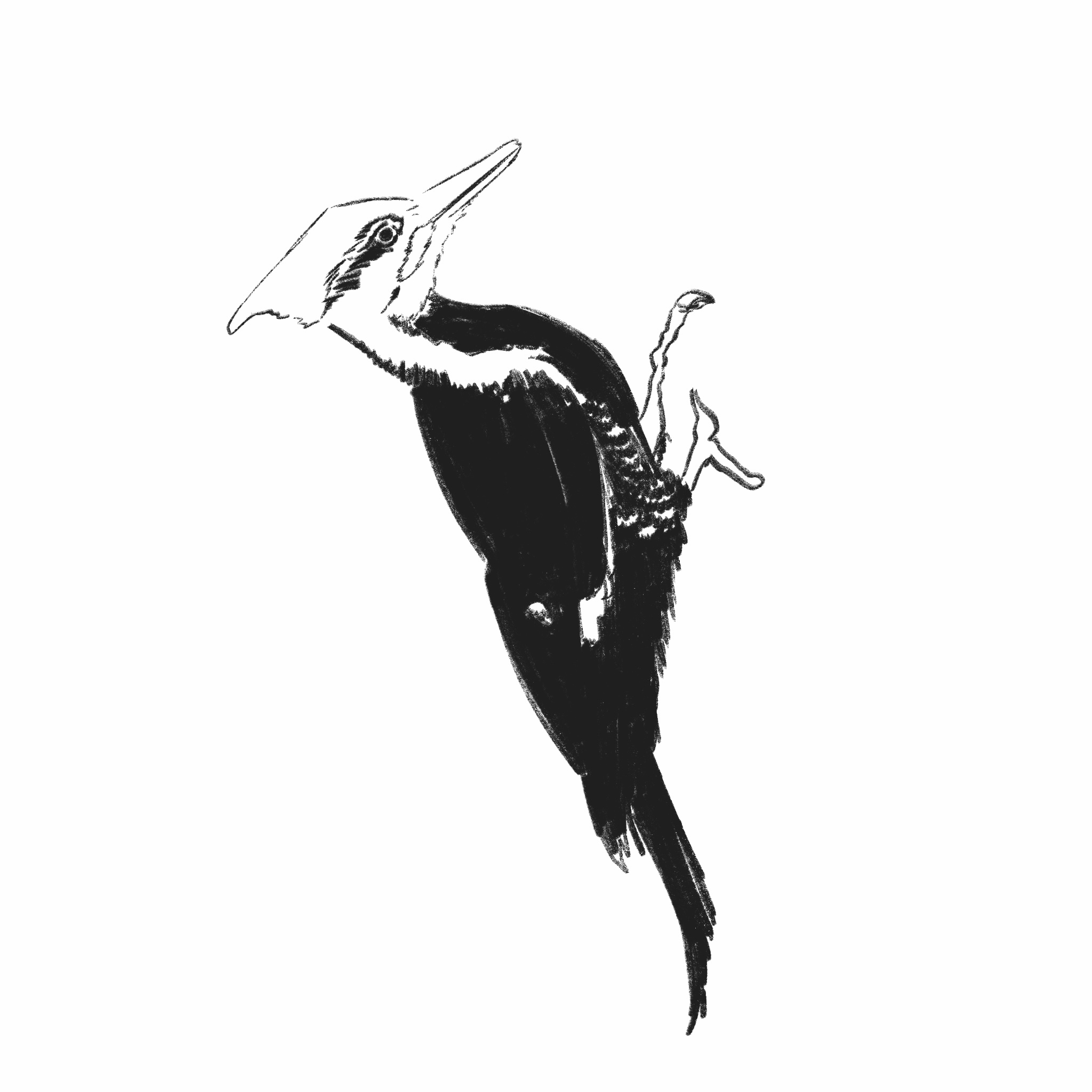On murmurations and collective flocking
May 2, 2025
 Henry Abbott
Henry AbbottThere was a woodpecker on the tree closest to my bedroom window on Sunday morning. His pecking sounded over the constant drizzling rain, becoming my very own aviary alarm, coaxing me in and out of sleep. His pecking reminded me that he was there—though he is always there, for the Downy Woodpecker does not migrate but lives in Maine year-round.
I do not. I am migratory, but with stranger patterns more similar to those of the Pine Siskin, whose irruptive migration, based on a need for natural resources, is erratic and inconsistent. I fly west and east unremittingly. Soon, I’ll fly even farther west; 3,250 miles to the Bay puts me in competition with the Rufous Hummingbird’s extra-long distance flights.
So I’m not sure I’ve gained resident status anywhere, nor is my aeronautical migration so impressive as winged flight, and I can’t quite find myself in any bird, for I’m certainly not as enchanting as they are. There is nothing common to me about the Common Grackle, the ubiquitous and beautiful blackbird so brilliant as to be the subject of an Aesop’s Fable. But, of course, there is nothing common to me about any bird.
Papers written on James Joyce and Charles Dickens which take up the aviary motif, birdwatching adventures embarked upon and hours spent playing the bird board game Wingspan have fueled, feathered and furthered my love. Of course, Stephen Dedalus has his most pivotal artistic epiphany upon seeing a beautiful bird girl! Of course, Pip yearns to be like the Finches of the Grove! Of course, I have never won a game of Wingspan, though I hold out hope. And, of course, I adore birds, for they are wise and they are free and they are the closest thing to an image of real spirituality I can count myself as holding.
On some mornings, when I am not awakened by my woodpecker, I pull myself out of bed to the sound of the iTunes duck alarm and venture out on a run. Sometimes there are small Black-capped Chickadees perched atop the awnings of bungalows or Tufted Titmice surveying backyard feeders. Such encounters with birds are everything to me.
Perhaps it is the manifoldness of birds that bewitches me so, or perhaps it is their fleetingness. The bird flits around the existence of time. In some moments he confirms it, migrating in perfect rhythm, or waiting out the cold winter like the insomniac who waits out the night. Birds wait out the night with ease and so deny time as a scheduled phenomenon of which we are forced to be conscious. Many species experience very short REM cycles and find themselves in states of unihemispheric slow-wave sleep—one half of their brain rests while the other stays awake and alert.
For me, time has been passing at once too quickly and too slowly. Gradually and rapidly the year ends, and I must figure out my existence in regard to space and time. For now, it is easier to reject the existence of either.
European Starlings enact a certain rejection of the existence of space—or, at least, of direction. Starlings gather in groups of hundreds and perform murmurations: aerial ballets of synchronous abstraction. Dancing together they are safe from the threats of predators such as Peregrine Falcons.
The togetherness of the European Starling stands as the artistic epitome of the community seen also in other flocks. Migratory birds fly together too, and non-migratory birds huddle with their flocks, storing food and fluffing their feathers to keep warm through cold winters. My present murmuration is in its final moments, my flock must disperse. Such is graduation, such is time, such is space. Great Tits often lose their flocks too, but as social beings who must neighbor and partner, they respond to this loss with the formation of new bonds. They cast space aside and flock despite the circumstances.
In the spring, we in the North are lucky to find our migratory flocks have returned. Except for when they do not: Rachel Carson’s “Silent Spring” recalls a season lacking birdsong due to the environmental tragedy of rampant insecticide poisoning. Carson demands that we honor the weight of the birds’ presence. She compels the recognition that “beauty and the ordered world of nature still have a meaning that is deep and imperative.” I know that time must pass, but I know also that I will return to my many flocks. It is imperative that I do.
I track the lives of the Chickadees in time, noting those that survive, those that roost, the migratory birds who return to perch beside them. The bird flies away and I must too; in their lives they never sleep—with my woodpecker pecking nor can I.
Talia Traskos-Hart is a member of the Class of 2025.

Comments
Before submitting a comment, please review our comment policy. Some key points from the policy: